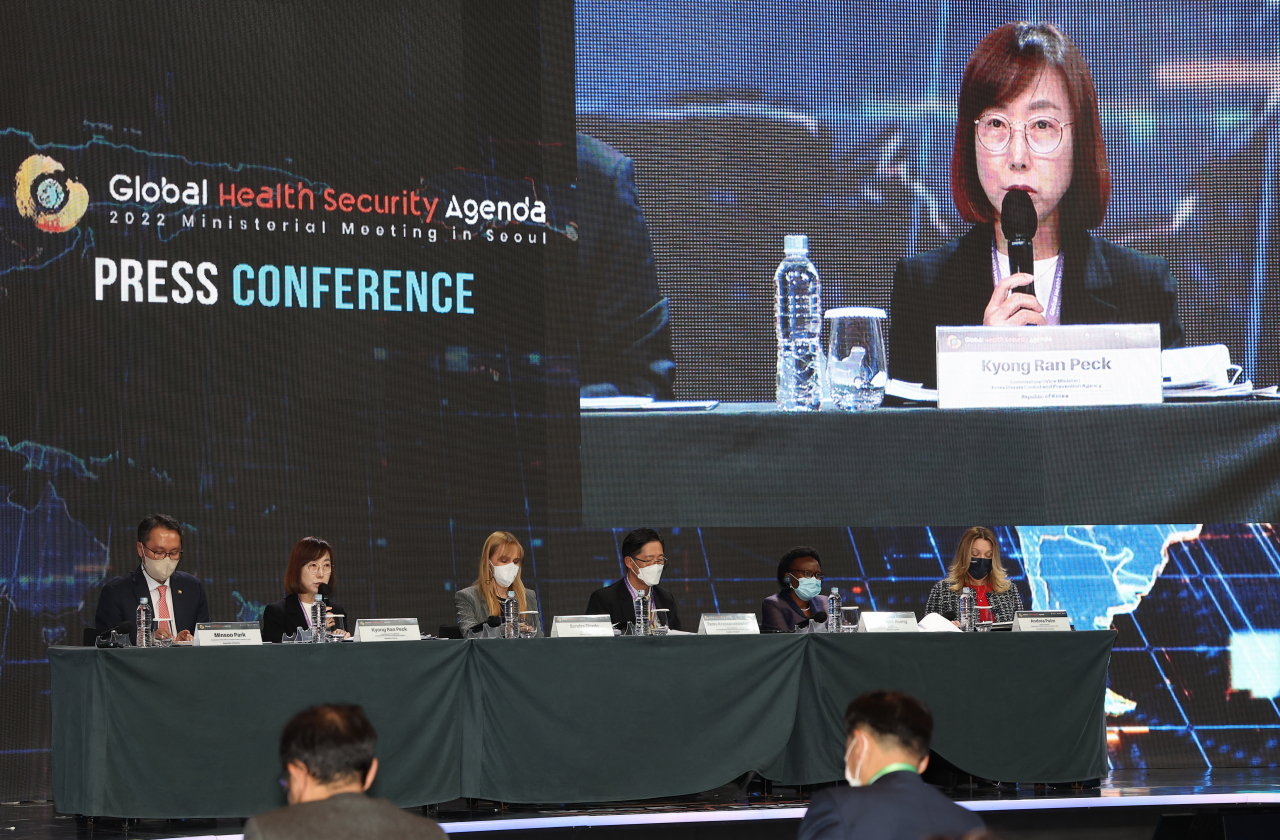COVID-19 shows health security vital for country to function: WHO expert
By Kim ArinPublished : Dec. 5, 2022 - 15:52

One lesson from COVID-19 is that health security is just as critical as other types of security, according to a World Health Organization expert.
“The COVID-19 pandemic has taught us all many painful lessons,” WHO’s global health security preparedness director Dr. Stella Chungong said in a written response to questions from The Korea Herald. “COVID has shown maintaining individual, community and national health security is vital for a country to function.”
She said that the WHO has used the term health security for over a decade, and that it concerns the agency’s International Health Regulation -- a legal framework on international public health threats that could occur naturally, deliberately, or accidentally.
Chungong, who was visiting Seoul for the Global Health Security Agenda meeting, said the GHSA was “an effort between nations, international organizations, and civil society to accelerate progress toward a world safe and secure from infectious disease threats and to promote global health security as a national, regional, and international priority.”
Korea, which hosted this year’s meeting, has proposed to establish the GHS coordination office here. “WHO applauds the proposal of Korea to work with other GHSA members to support efforts to strengthen regional and global health security,” she said.
Korea has also contributed to the G20 pandemic fund, which will “provide catalytic funding to implement country plans for national health security and build capacities to detect and respond to health emergencies,” she added.
“WHO thanks the Republic of Korea for their role in ensuring a safer world.”
For health security preparedness having cross-sector collaboration is “vital,” she said. Global health security was a shared responsibility, and collaboration was essential among governments, non-governmental institutions, private sectors and the military.
“Engagement with ministries of defense too can contribute significantly to strengthening health emergency preparedness and health security, particularly relating to the two sectors’ capacities and capabilities to prevent, detect and respond,” she said.
“Ministries of defense are crucial for the mitigation of such public health threats as chemical, biological, radiological, and nuclear incidents, whether intentional or otherwise.”
Chungong said the WHO, its member states and the International Committee of Military Medicine have published the civil-military collaboration framework last year.
“The aim of this framework is to provide the public health sector and military actors and services at the national level with guidance for establishing, advancing, and maintaining collaboration and coordination, with the focus on country core capacities required to effectively prevent, detect, respond to, recover from, and build back better after health emergencies,” she said.
She said that building on the lessons learned over COVID-19, the WHO has made “key proposals for an enhanced global health security architecture -- with stronger governance, stronger financing, stronger systems and tools -- and a stronger WHO at its center.”
“WHO has learnt and is applying many lessons from the pandemic in updating tools and guidance,” she said. “WHO puts countries at the center, and has put forward proposals to strengthen the global architecture to keep the world safer and protect the most vulnerable.”


















![[KH Explains] Hyundai's full hybrid edge to pay off amid slow transition to pure EVs](http://res.heraldm.com/phpwas/restmb_idxmake.php?idx=652&simg=/content/image/2024/04/18/20240418050645_0.jpg&u=20240418181020)

![[Today’s K-pop] Zico drops snippet of collaboration with Jennie](http://res.heraldm.com/phpwas/restmb_idxmake.php?idx=642&simg=/content/image/2024/04/18/20240418050702_0.jpg&u=)